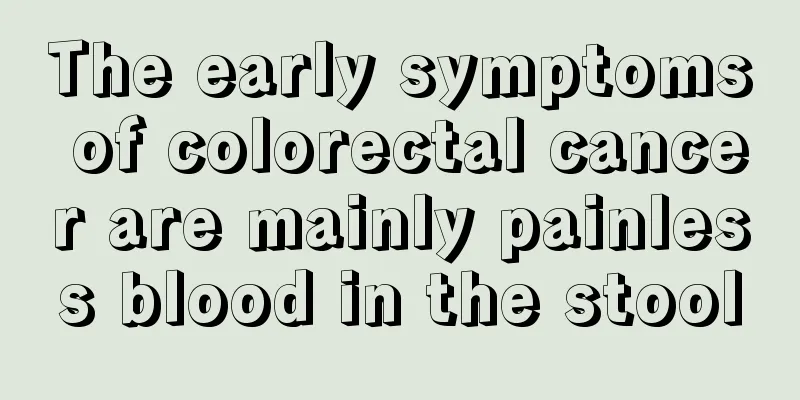Prostate cancer survival rate in the elderly

|
What is the survival rate of prostate cancer in the elderly? Experts point out that prostate cancer, as a type of malignant tumor, is indeed very difficult to treat. Clinically, in addition to drug treatment, surgery is a common treatment for prostate cancer. The question of how long a prostate cancer patient can live is what all prostate cancer patients and their families want to know. In fact, this question is closely related to the prognosis of male prostate cancer, the stage of prostate cancer and the malignancy of the tumor, and is also directly related to the treatment method used. Most of the patients with prostate cancer in my country are already in the middle and late stages when diagnosed, and have lost the chance of radical resection. So, what is the prognosis for patients in the middle and late stages? Because prostate cancer is androgen-dependent, these patients can still get the disease under control through endocrine therapy. Endocrine therapy can greatly improve the prognosis of patients with prostate cancer. According to statistics, the 5-year survival rate of patients receiving endocrine therapy can reach 60%. However, there are great individual differences in endocrine therapy. Not all people are sensitive to it. Even if they are sensitive, the effective time for each person is different. The longest-surviving prostate cancer patient we have encountered in the clinic who has received endocrine therapy has reached 21 years. However, we also encountered a patient whose endocrine therapy was ineffective after 3 months and the disease progressed rapidly. There is little prognostic information for those who do not actively treat middle and late-stage prostate cancer. Only a few data reports show that the 5-year survival rate is less than 15%. Some people may ask, if there is prostate cancer, will early detection and treatment be helpful for cancer treatment? The answer is yes. The earlier prostate cancer is treated, the smaller the area of cancer cell spread will be, and the treatment will be relatively easier. However, since prostate cancer often has no obvious symptoms in the early stage, it is often difficult for patients to detect it. Therefore, in clinical practice, most prostate cancer patients are in the middle and late stages of prostate cancer. Whether the treatment method is appropriate is the most important factor affecting how long a patient can live after the symptoms of prostate cancer occur. For the symptoms of advanced prostate cancer, surgical resection is unlikely. Commonly used treatment methods in clinical practice include radiotherapy, chemotherapy, endocrine therapy, and traditional Chinese medicine. The commonly used radiotherapy method for patients with advanced prostate is palliative radiotherapy in the prostate area or metastatic lesions, which has a more direct killing effect on the tumor. However, since radiotherapy will inevitably damage normal cells, the irradiation intensity, irradiation range, and irradiation time should be carefully selected according to the overall condition. Chemotherapy is also an adjuvant treatment method for advanced prostate cancer. It can be used in combination with radiotherapy and endocrine therapy, which can prolong survival to a certain extent and improve the quality of life. Commonly used endocrine treatment methods after the symptoms of advanced prostate cancer appear include orchiectomy, estrogen therapy, anti-androgen therapy, and adrenocortical hormone therapy. Among them, orchiectomy is the most commonly used to eliminate the source of androgen, and then combined with estrogen or anti-androgen therapy, the effect is better, which is helpful to prolong the survival of patients with advanced prostate cancer. In view of the toxic side effects of chemotherapy and endocrine therapy on the human body, traditional Chinese medicine can be combined with treatment in the treatment of advanced prostate cancer to enhance efficacy and reduce toxicity. For patients with advanced prostate cancer who have a wide range of metastases, weak physical functions, and are unable to tolerate chemotherapy, traditional Chinese medicine can be used for conservative treatment. Although the short-term effect is not as obvious as chemotherapy, the long-term effect is good and has a significant effect in improving the quality of life and prolonging survival. |
<<: How to exercise to maintain health for breast cancer
>>: Does eating eggs aggravate prostate cancer?
Recommend
Can orange seeds be eaten
Oranges are a very common fruit in our lives, but...
How to reduce swelling in eyes after crying? There are 9 tips to reduce swelling
We all know that it is easy for the eyes to swell...
Can I drink mung bean water while taking medicine
We all know that mung beans can clear away heat a...
How to treat HPV58 positive
If you test positive for HPV58, you should pay sp...
Which of the 5 ways to wash fruit is the most reliable?
In fact, if you search on Baidu about how to wash...
Where is the healthiest place to put your mobile phone
With the development of wireless communication te...
Solutions to getting angry in different situations
Because many people now have bad eating habits, c...
How to make stockings flowers
As people's quality of life continues to impr...
Can I get pregnant if I have systemic lupus erythematosus
Patients with systemic lupus erythematosus are no...
How to prolong the life span after radiotherapy for nasopharyngeal carcinoma
How to prolong life after radiotherapy for nasoph...
The difference between light butter and salted butter
Many people know that butter is a widely used ite...
The efficacy and function of yellow lemon
Lemon is a very common fruit for many people. Lem...
What are the symptoms of endometrial cancer
In life, many patients with uterine cancer feel d...
Why do I twitch when I sleep?
If you experience convulsions while sleeping, you...
What does stomach cancer look like when it appears
Patients with gastric cancer will feel some disco...









